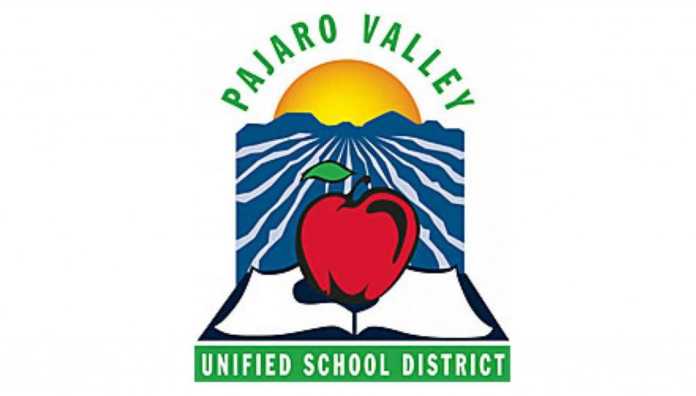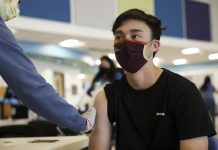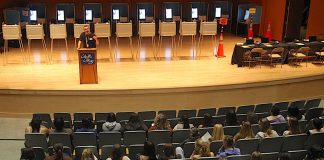WATSONVILLE — Every day, Pajaro Valley Unified School District’s small team of socio-emotional counselors take on an enormous range of problems affecting thousands of students.
And with just 12 on staff for the district’s 35 schools, they manage heavy caseloads that sometimes can top 1,500.
Just one counselor is assigned to each of the comprehensive high schools, while one is tasked with two middle schools each.
The issue is worse in the elementary schools, which on average get one counselor one day a week.
“Your load could be 1,500 kids,” New School counselor Michelle Close said.
While issues of anxiety and depression have long existed, they are on the rise, thanks in part to President Donald Trump’s hardline immigration policies.
This means that many students live in constant fear that federal immigration authorities will one day raid their homes to take away their parents. Worse, they see such policies as a societal judgment on their place in their community, Close said.
“Those students are saying, ‘I know I am not wanted.’ That is more trauma,” she said.
Still, with such a burden, the counselors must devote the lion’s share of their focus to students who need them most.
This includes those who are missing too much school and at risk of getting suspended or expelled. They also see students who are depressed or are at risk of suicide.
In addition, they counsel students in times of crises, manage the district’s population of foster children and help connect families to a wide range of resources such as food aid and social services.
Such services are vital for the countless students who face trauma in their lives, a catchall word that can include domestic violence, divorce, substance abuse and poverty.
“When you are depressed or stressed, it can affect the way you think about the past or future,” Close said.
This puts students in a position when they must first worry about their own safety before they can learn, Close said.
“That means that learning comes second,” she said. “You can’t do both at the same time.”
Such counseling has not historically been part of traditional teacher training programs, and can be beyond the scope of principals and educators already busy with day-to-day education issues.
In so-called Trauma-Informed schools, principals, teachers, law enforcement officials, counselors, parents and others are taught to recognize and address trauma.
“We are trying to, one person at a time, one day at a time, give as much support as we can,” Close said. “But we are overwhelmed. In an ideal world, every school would have at least one.”
The district has been building its ranks of socio-emotional counselors for about four years, after recession-era budget cuts around 2008 reduced its numbers, Assistant Superintendent of Student Services Suzanne Perez said.
District officials hope eventually to increase the numbers, a move that would require finding the money in the budget.
PVUSD is currently working with CSU Monterey Bay on a plan to bring student interns who would work under a counselor, Perez said.












